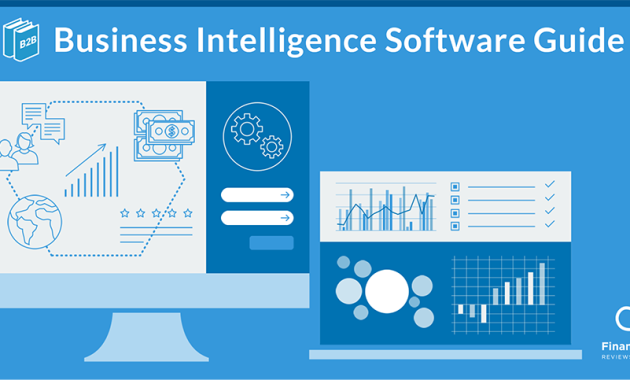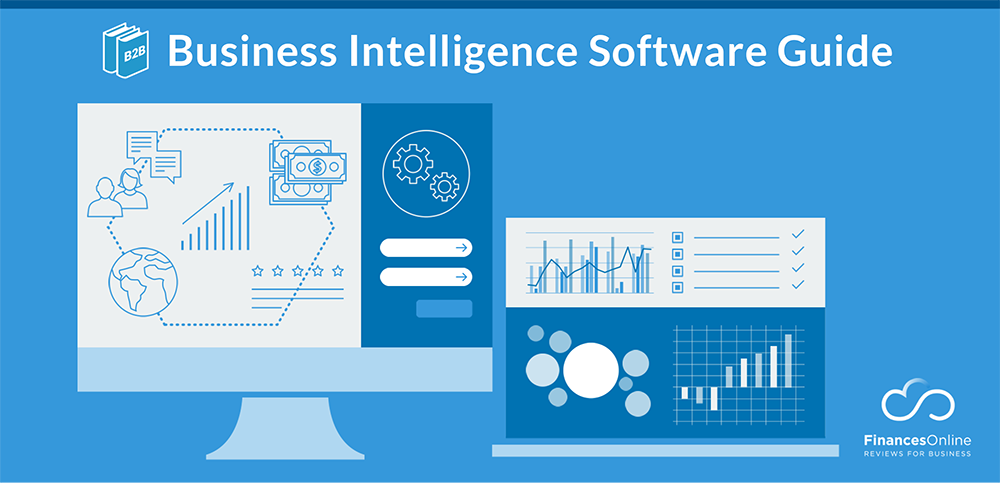
Make Smarter Moves with Business Intelligence Software: Data-Driven Decisions for Business Success
In today’s fast-paced business landscape, making informed decisions is no longer a luxury; it’s a necessity. Companies that rely on gut feelings and outdated information are quickly falling behind. The key to staying ahead lies in harnessing the power of data. This is where Business Intelligence (BI) software comes into play, empowering organizations to make smarter moves and achieve sustainable growth. This article delves into the world of Business Intelligence software, exploring its capabilities, benefits, and how it can transform your business.
Understanding Business Intelligence Software
Business Intelligence software is a broad term encompassing various tools and applications designed to collect, analyze, and visualize business data. It transforms raw data into actionable insights, enabling businesses to understand trends, identify opportunities, and mitigate risks. Unlike traditional reporting methods, BI software provides real-time data analysis, interactive dashboards, and customizable reports, giving decision-makers a comprehensive view of their operations.
At its core, Business Intelligence software focuses on:
- Data Collection: Gathering data from diverse sources, including databases, spreadsheets, CRM systems, and marketing platforms.
- Data Analysis: Processing and analyzing data to identify patterns, trends, and anomalies.
- Data Visualization: Presenting data in an easy-to-understand format, such as charts, graphs, and dashboards.
- Reporting: Generating reports that summarize key findings and insights.
Key Benefits of Business Intelligence Software
Implementing Business Intelligence software offers a multitude of advantages for businesses of all sizes and across various industries. Here are some of the most significant benefits:
Improved Decision-Making
Perhaps the most significant benefit is the ability to make smarter moves based on data rather than intuition. BI software provides decision-makers with the information they need to make informed choices, reducing the risk of errors and maximizing the chances of success. The software offers a holistic view of business performance, which can lead to better strategic planning.
Enhanced Efficiency
BI software streamlines data collection, analysis, and reporting processes, saving time and resources. Automation features reduce the need for manual data entry and analysis, freeing up employees to focus on more strategic tasks. This efficiency gain leads to increased productivity and reduced operational costs. Businesses can also optimize processes and identify areas for improvement.
Increased Revenue and Profitability
By providing insights into customer behavior, market trends, and sales performance, Business Intelligence software helps businesses identify new revenue opportunities. It can also optimize pricing strategies, improve marketing campaigns, and identify cost-saving measures. This leads to increased profitability and a stronger bottom line. Understanding customer preferences is crucial.
Better Customer Experience
Business Intelligence software can help businesses understand customer needs and preferences better. Analyzing customer data can identify patterns and trends, enabling businesses to personalize their offerings and improve customer service. This leads to increased customer satisfaction and loyalty. It helps businesses tailor their products and services.
Competitive Advantage
In today’s competitive market, data is a valuable asset. Business Intelligence software gives businesses a competitive edge by providing them with the insights they need to stay ahead of the competition. It allows them to identify market trends, anticipate customer needs, and make proactive decisions. This advantage is vital for long-term success. Competitors may not have access to the same level of data insight.
Features to Look for in Business Intelligence Software
When selecting Business Intelligence software, it’s essential to consider your specific business needs and choose a solution that offers the following key features:
Data Integration
The ability to integrate data from various sources is crucial. The software should be able to connect to databases, spreadsheets, cloud applications, and other data sources. This ensures a comprehensive view of your data. Check for compatibility with your existing systems.
Data Analysis and Reporting
Robust data analysis and reporting capabilities are essential. The software should provide a range of analytical tools, such as data mining, statistical analysis, and predictive modeling. It should also allow you to generate customizable reports and dashboards. Ensure the reporting is easy to understand.
Data Visualization
Data visualization is key to making data understandable and actionable. The software should offer various visualization options, such as charts, graphs, and maps. Interactive dashboards allow users to explore data and gain insights quickly. Effective visualization is key for quick analysis.
User-Friendly Interface
The software should have a user-friendly interface that is easy to navigate and use, even for non-technical users. Intuitive dashboards and drag-and-drop functionality can simplify the analysis process. The interface should be accessible to all team members.
Mobile Accessibility
In today’s mobile world, it’s essential to have access to your data on the go. The software should offer mobile accessibility, allowing you to view reports and dashboards on your smartphone or tablet. Mobile access is crucial for timely decisions. This feature allows on-the-go data access.
Scalability
Choose software that can scale with your business. As your data volume grows, the software should be able to handle the increased workload without performance issues. Scalability ensures long-term usability. This is an important consideration for future growth.
Implementing Business Intelligence Software: A Step-by-Step Guide
Implementing Business Intelligence software involves several key steps. Following a structured approach ensures a smooth transition and maximizes the benefits of the software.
- Define Your Goals: Clearly define your business objectives and the key performance indicators (KPIs) you want to track. This will guide your software selection and implementation strategy. Identify what you hope to achieve.
- Choose the Right Software: Research and evaluate different BI software solutions based on your specific needs and budget. Consider factors such as features, ease of use, and integration capabilities. Select the software that best fits your needs.
- Prepare Your Data: Clean and prepare your data to ensure accuracy and consistency. This may involve data cleansing, transformation, and integration. Data quality is crucial for reliable insights.
- Implement the Software: Install and configure the software, and integrate it with your data sources. Provide training to your employees to ensure they can effectively use the software. Proper implementation is vital for success.
- Create Reports and Dashboards: Design and create reports and dashboards that provide the insights you need. Customize the reports to meet your specific requirements. Ensure the reports are easily understandable.
- Analyze and Iterate: Continuously analyze the data and make adjustments to your reports and dashboards as needed. Regularly review your KPIs and identify areas for improvement. Constant analysis leads to better outcomes.
Choosing the Right Business Intelligence Software for Your Business
Selecting the right Business Intelligence software can be overwhelming, given the wide variety of options available. Consider these factors to guide your decision:
- Your Business Needs: What specific problems are you trying to solve? What data do you need to analyze? Define your key requirements.
- Data Sources: What data sources do you need to connect to? Ensure the software supports your existing systems. Check for compatibility.
- Budget: What is your budget for software and implementation? Consider the total cost of ownership, including licensing fees, training, and support. Plan your budget carefully.
- Ease of Use: How easy is the software to use? Is it intuitive and user-friendly? Consider the learning curve for your team.
- Scalability: Can the software scale with your business? Ensure it can handle your future data volume and growth. Consider long-term needs.
- Vendor Reputation: Research the vendor’s reputation and customer reviews. Choose a reputable vendor with a proven track record. Check customer reviews.
The Future of Business Intelligence
The future of Business Intelligence software is bright, with several emerging trends shaping its evolution. Artificial intelligence (AI) and machine learning (ML) are playing an increasingly important role, automating data analysis and providing more advanced insights. Cloud-based BI solutions are becoming more popular, offering greater flexibility and scalability. Data democratization, empowering more employees to access and analyze data, is also a growing trend. These trends will continue to drive innovation in the BI space. The future is about smarter, faster insights.
In conclusion, Business Intelligence software is a powerful tool that can help businesses make smarter moves and achieve their goals. By leveraging the insights provided by BI, businesses can improve decision-making, enhance efficiency, increase revenue, and gain a competitive advantage. Choosing the right BI software and implementing it effectively is crucial for realizing these benefits. Embrace data-driven decision-making to ensure your business’s success. [See also: Choosing the Right BI Software for Your Business] [See also: Data Visualization Best Practices] [See also: The Role of AI in Business Intelligence]

